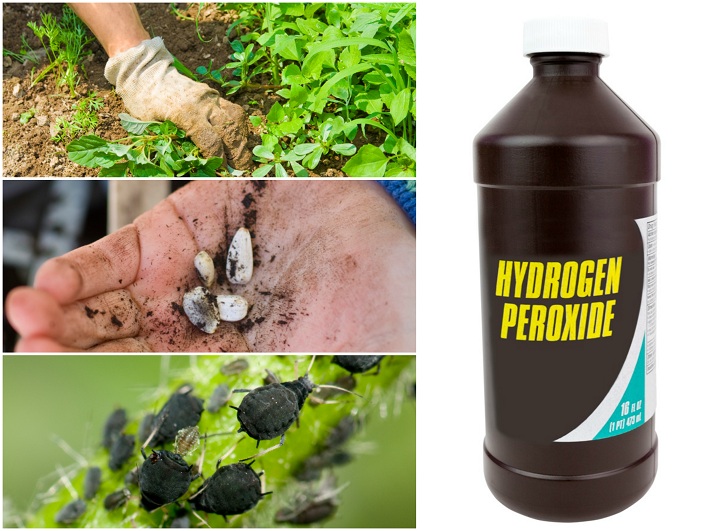Hydrogen peroxide is a colorless liquid generally known as a household disinfectant and bleaching agent. In comparison with water, hydrogen peroxide has only an extra oxygen atom, but it is a combustible and corrosive substance. However, thanks to its antimicrobial and oxygen generating properties, diluted hydrogen peroxide has many uses in the house and garden!

Here is why should use hydrogen peroxide in your garden…
-
Disinfect Pots, Tools, and Greenhouses
Medical and laboratory establishments use hydrogen peroxide for sterilizing surgical tools and work surfaces. In order to disinfect seed trays, pots, and other containers, use 6%-9% solution. Also, you can use it in a sprayer to disinfect the air.
It is effective against most types of bacteria, viruses, and fungi. When applied at concentrations above 10%, it can destroy spores, but pay attention while using such concentrated solutions. Moreover, it can be used to prevent mold and mildew from clouding glass panes of greenhouses.
-
Disinfect Growing Medium
You can use washed river sand if you disinfect it with hydrogen peroxide, instead of using perlite and vermiculite. Use this chemical solution (3% to 6%) to destroy soil pathogens when you make a potting mix with compost, sand, and other additives. Soak the sand with this solution and cover it with a plastic sheet.
-
Sanitize Seeds
Disinfect seeds before you sow them because in that way you will stop seed-borne pathogens to kill off young seedlings. For all types of seeds, it is recommended soaking in 3% hydrogen peroxide heated to 1400F for 5 minutes. Then, wash off the chemical by placing the seeds in plain running water at room temperature for a minute.
-
Boost Root Development
Hydrogen peroxide can help root development and all you need to do is mix one pint of 3% hydrogen peroxide into a gallon of water. Once a week, use this solution to water the plants.
-
Use as Insect Repellant
This chemical solution can reduce the pest population in the garden. It acts as an excellent insect repellant and can kill the eggs and larvae of moths with its strong oxidizing effect.
CAUTION: Use with caution near your plants because at 10% concentration and above destroys all types of vegetation. If it gets into your eyes or splashes on your hands by accident, immediately wash with lots of cold water.
